Unlocking new opportunities for education in support of development
Why is this important?
The United Nations Sustainable Development Goal 4 calls on the global community to ensure inclusive and quality education for all and promote lifelong learning. This same vision is at the core of the Cape Town Declaration and is a shared value of what open education hopes to achieve. As a movement, we need to center the role of open education in advancing development around the world.
The challenges to expanding educational opportunities related to development are manifold. Too often, a barrier is supplying quality, locally-relevant educational materials, especially in underserved languages and regions that traditional market mechanisms do not prioritize. Other challenges may be infrastructural, including the connectivity, power, or transportation systems needed for materials to reach students, especially in rural areas. Where access to technology is expanding, teacher training and digital literacy skills may not have caught up. While the specifics vary widely across countries and contexts, a common thread is that traditional approaches are not working and new approaches are needed.
What is the opportunity?
Open education creates opportunities for new approaches to learning resource development, including strategies and methods for reusing, translating, and adapting openly licensed content. Storyweaver by Pratham books is a great example of a project taking a new approach, allowing anyone to contribute by translating books into their own local language, or even create new stories based on pictures and illustrations shared by others. Books are openly licensed, and can be downloaded and printed locally.
Opportunities for localizing and distributing OER at scale are also expanding, including through the use of mobile devices. In Senegal, which has one of the fastest growing markets for self-paced online education, the project SeeSD is translating and adapting STEM OER to fit local needs. African Virtual University created an OER repository for African educators to share OER they create with each other and the world.
Access to educational materials is important, but not enough. There must be an equal emphasis on ensuring that teachers and schools are equipped with the training and support needed to discover, adapt, and effectively make use of OER with students, including basic digital literacy. Open education can provide new approaches here too, for example TESS-India is a professional development program to support the adoption of more learner-centred, effective classroom pedagogy with OER to benefit students.
How can you get involved?
- Get involved as translator or content creator in projects like Storyweaver or African Storybook that support the production of locally relevant educational resources.
- OER creators should follow best practices in making editable source files available, which makes it easier for others to translate and localize materials. Where possible, avoid proprietary formats that require the purchase of software to make changes.
- Talk about open education as a pathway to address Sustainable Development Goal 4. The SDGs have high visibility in international circles, and this can help raise awareness of open education, and vice versa.
- Review the study results from the Research on Open Educational Resources for Development (ROER4D) to understand more about OER in developing contexts.
